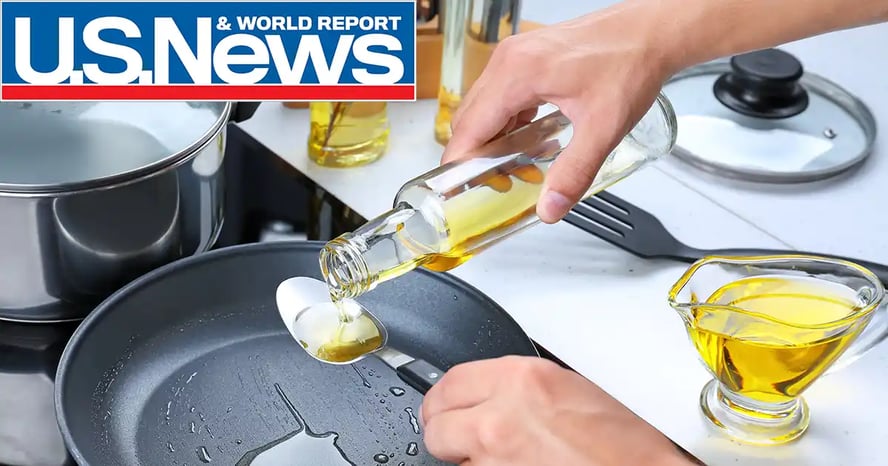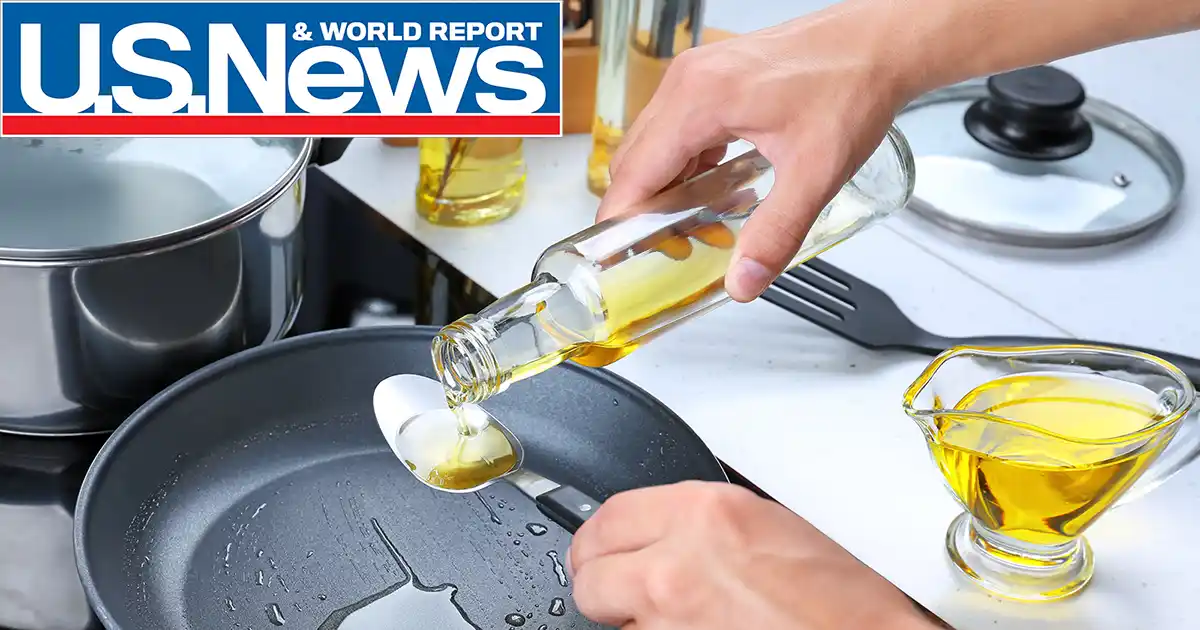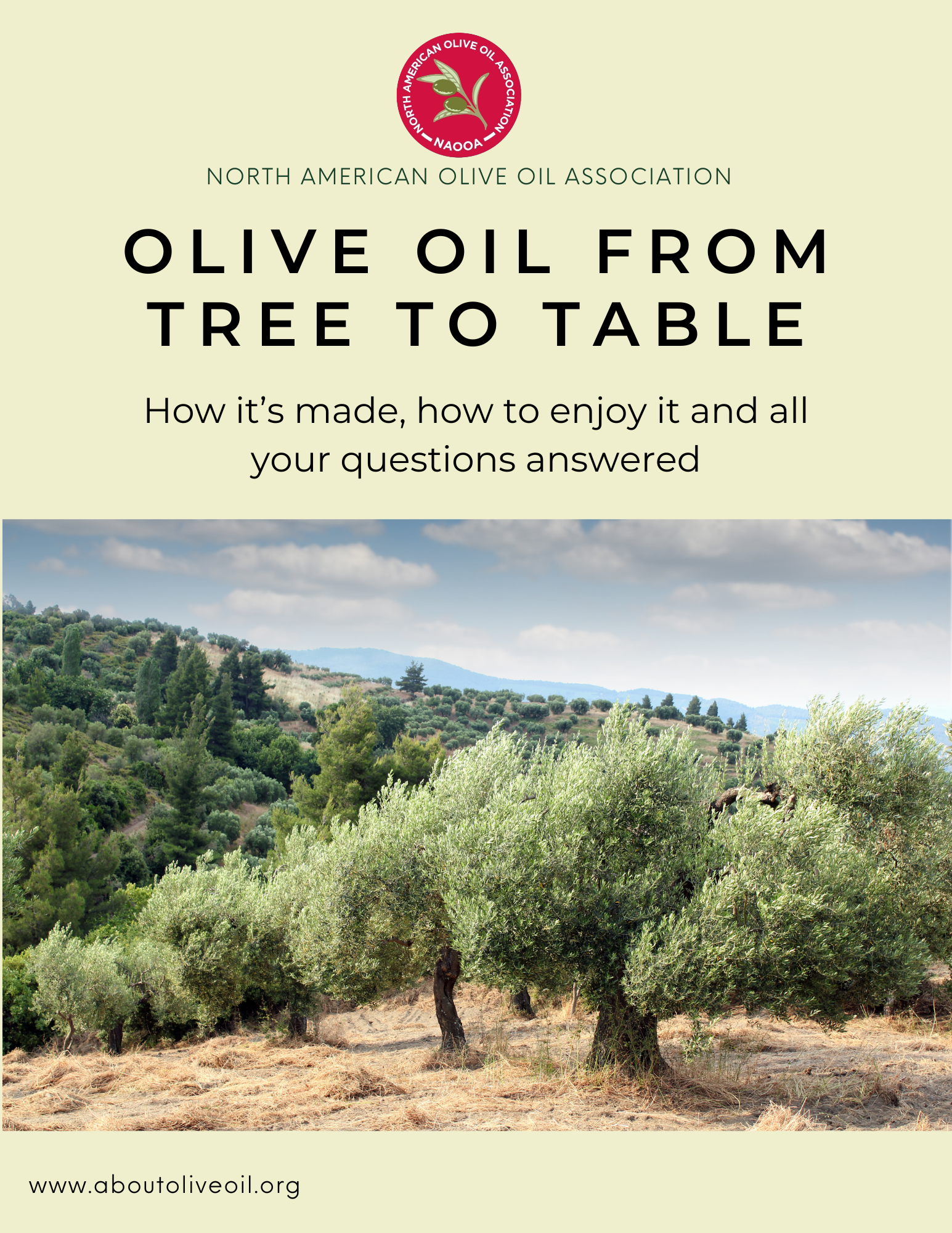
U.S. News & World Report recently reported on the latest research on why you should stop worrying about olive oil's smoke point.
Health & Wellness reporter K. Aleisha Fetters writes:
But in recent years, alarms have repeatedly sounded over fears over the oil's "smoke point," and how heating olive oil to this temperature could release harmful compounds. Cautious consumers worried that heating olive oil during cooking would, at best, take away from olive oil's health benefits and, at worst, be dangerous.
However, 2018 research published in Acta Scientific Nutritional Health shows that not only is extra virgin olive oil safe when cooked to extremely high temperatures, it is more chemically stable at those heats than other common cooking oils.
A Smoke Point Isn't the Best Predictor of a Cooking Oil's Stability
In the Acta Scientific Nutritional Health study, 10 of the most commonly used cooking oils were selected from the supermarket and heated in two different trials. In the first, the oils were heated for about 20 minutes until they reached 464 degrees Fahrenheit. In the second trial, the oils were heated in a deep fryer to 356 degrees Fahrenheit, the highest temperature recommended for deep-frying foods, for six hours.
In both tests, extra virgin olive oil displayed the greatest oxidative stability, producing lower levels of polar compounds, trans fats and other byproducts when compared with other oils that had higher smoke points.
"Smoke point does not correlate with the timing when the oil starts to break down or lose stability," explains Selina Wang, research director at the University of California—Davis Olive Center. While olive oil has a moderate smoke point, its stability may be due to its high levels of antioxidants as well as monounsaturated fats, she says. (Note: While extra virgin olive oil was the most stable oil when heated, coconut and other virgin oils such as avocado followed close behind.)
In a 2010 Food and Chemical toxicology study, when researchers fried various types of olive oil, only after 24 to 27 hours of frying were the oils considered to be harmful. And in a 2015 Food Chemistry study, when researchers deep fried and sautéed potato, tomato, eggplant and pumpkin, antioxidant levels of the foods actually increased, showing that olive oil continues to deliver nutritional benefits even when cooked at a high heat.
"Oxidative stability, not smoke point, is the best predictor of how an oil behaves during cooking," says Holly Herrington, a registered dietitian at Northwestern Memorial Hospital in Chicago.
Remember: You Probably Aren't Going to Hit the Smoke Point
When you're cooking with olive oil, you're not typically just heating olive oil by itself in a laboratory and serving it straight.
"The smoke point is determined in an enclosed environment, using only a very small volume of oil in a small brass capsule," Ravetti says. Factors such as the amount of oil used and the presence of air can increase the temperature at which a given oil smokes, meaning that, in practice, oil smoke points are likely greater than their official numbers.
All in all, even if smoke point were a good measure of how an oil holds up at high heat, it's very unlikely that you will actually hit that temperature in the kitchen. So if you love olive oil, there's no reason to stop cooking with it now.
Read the full article on U.S. News & World Report
Further Reading:
- Smoke Point Is Not a Reliable Indicator of Cooking Oil Stability
- Why Olive Oil is the Best Oil for Frying
- The Culinary Institute of America Clarifies Guidance on Cooking With Olive Oil
- Olive Oil Retains Health Benefits During Cooking
- USDA Recommends Olive Oil for Deep Frying





